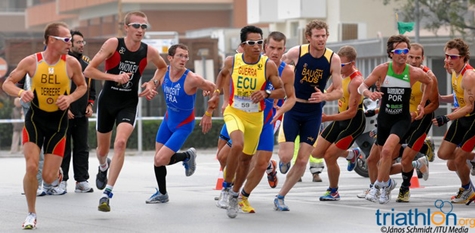Metabolism and Health |
|
Understanding Metabolism and gaining an awareness of and then exercising some control over our Metabolism is important in achieving Longevity. Maintaining a high metabolism throughout our life extends a high quality life. Long term high Metabolism is achieved through (i) regular vigorous exercise, (ii) eating nutritious foods, (iii) living a clean, simple and rich life, (iv) gaining an awareness of and living with the flow of the natural forces, (v) proper breathing, (vi) maintaining a positive attitude, (vii) maintaining a high Nerve Force and getting good sleep, (viii) assuming responsibilities, (ix) living in the present and setting long term goals, and (x) nourishing the spirit. An efficient Metabolism fosters a high Metabolism long term.
At the cellular level, the cellular chemical process of all living cells, whether plant, animal or bacteria, are similar. All living matter is made of up large molecules called proteins. Proteins are assembled from about 20 amino acids.
Green plants use the energy of sunlight to convert water (H2O) and carbon dioxide (CO2) carbohydrates (sugars and starches), other organic compounds and oxygen (O2). This process called photosynthesis requires energy which is provided by the sun. In this process, one water molecule is split into (i) one oxygen molecule and (ii) two hydrogen atoms each of which become one hydrogen ion and one electron. In this process, carbon dioxide bonds with a hydrogen molecule to form a carbohydrate. As carbohydrates are made from the energy of the sun, it is more nutritious to obtain natural carbohydrates from naturally grown foods, instead of carbohydrates (often empty) obtained from heavily processed foods.
Animals, all of which require oxygen made by plants, reversing the process of plants, consume carbohydrates and other organic material using oxygen to form water, carbon dioxide and energy. Living organism transform energy from one form to another.
Human Metabolism (as is metabolism that occurs in all living organisms) is the set of energy transforming chemical reactions that maintain life. These chemical reactions cause organisms and cells to be maintained, grow, reproduce, maintain structure and respond to their environment.
Metabolism is broken down into two main catagories: catabolism and anabolism. Catabolism is the process that breaks down molecules into smaller units and releases energy. This ‘Cellular Respiration’ is the set of the metabolic reactions and processes that take place in cells to convert biochemical energy from nutrients into adenosine triphosphate (ATP) ATP is the agent cell’s use to transfer the energy released by catabolism to the energy-requiring reactions which make up anabolism. In catabolism, large molecules such as polysaccharides, lipids, nucleic acids and proteins are broken down into smaller units such as monosaccharides, fatty acids, nucleotides and amino acids, respectively. Catabolic processes include glycolysis, the citric acid cycle, the breakdown of muscle protein in order to use amino acids for gluconeogenesis, and the breakdown of fat in adipose tissue to fatty acids. Glucose, amino acids, fatty acids and oxygen are the basic nutrients for this process. This process is considered an oxidation process involving a release of chemical free energy. The use of oxygen in this respiration process is described as aerobic
Anabolism is the set of metabolic processes that construct molecules from smaller units. These reactions require energy which is supplied in the catabolic process.
Anabolic processes building up organs and tissues. Examples of anabolic processes include the growth and mineralization of bone and increases in muscle mass.
Heat is a byproduct of Metabolism. The generation of heat to keep oneself warm is an important function of Metabolism. Training our bodies to rely more on Metabolism as a means to stay warm as opposed to relying more heavily on layers of clothing is an important skill and vehicle to maintain a high Metabolism and strong immune system. Carbohydrates from fruit, vegetable, grains, pasta and dairy provide excellent fuel to generate heat.
The balance between anabolism and catabolism, which is regulated by hormones, is also regulated by circadian rhythms, with processes such as glucose metabolism fluctuating to match our normal periods of activity throughout the day.
Immune System
The Immune System is a collection of adaptive mechanisms within our bodies that protects against disease by identifying, adapting as needed and killing a wide variety of harmful agents or pathogens. Detection is complicated as pathogens can evolve rapidly, producing adaptations that avoid the immune system and allow the pathogens to successfully infect their hosts.
The Immune System consists of many types of proteins, cells, organs, and tissues, which interact in an elaborate and dynamic network. As part of this more complex immune response, the Immune System adapts over time to recognize specific pathogens more efficiently. This adaptation process is referred to as "adaptive immunity" and creates immunological memory. This memory translates into an improved response to retained eliminated pathogens. This memory allows the adaptive immune system to mount faster and stronger attacks each subsequent time the pathogen is encountered.
Hormones play a powerful role in metabolism and play a key role in regulating the immune system, most notably prolactin, the Human Growth Hormone and vitamin D. It is conjectured that a progressive decline in hormone levels with age is partially responsible for weakened immune responses in aging individuals.
Moderate Exercise increases hormone production, increases antibody levels, helps build a strong immune system and enhances Longevity. Exercise induced increased hormone levels throughout life help extend life. Exercise also causes increased glucose uptake from the blood. During exercise blood glucose levels can be maintained and increased as needed by augmented release of glucose from the liver and kidneys. The right balance of blood glucose levels during exercise enhances the immune system as the Cardiovascular system increases blood delivery rich with glucose and other nutrients to all parts of the body during exercise to meet increased demands.
The immune system is enhanced by sleep and rest, and is impaired by stress. Sustained excess exercise without proper intervals of rest and good sleep will also impair the immune system.
Diet affects the immune system. A nutritious diet, enhances the immune system. For example, fresh Fruits and Vegetables and foods rich in certain fatty acids may foster a healthy immune system, as do Grains, Dairy products and other foods rich in the B Vitamins.
Likewise, fetal undernourishment can cause a lifelong impairment of the immune system. Hence the importance For Women to maintain a nutritious diet before and during pregnancy, as well as during breast feeding.
Yogurt cultures helps restore a healthy balance of microbial populations in intestinal infections in children. Yogurt cultures have been found to defend against bacterial gastroenteritis inflammatory bowel diseases, urinary tract infection and post-surgical infections, and as such enhance the Immune System. Yogurt cultures helps restore a healthy balance of microbial populations in intestinal infections in children.
Some herbs are believed to stimulate the immune system, such as echinacea, licorice, ginseng, astragalus, sage, garlic, elderberry, shiitake and lingzhi mushrooms, and hyssop, as well as honey.
Physiologically, our body produces B Cells which identify pathogens when antibodies on the cell’s surface bind to a specific harmful agents. These cells with the help of T Cells begin to divide. The offspring cells called plasma cells secrete millions of copies of the antibody that recognizes this antigen. These antibodies circulate in blood plasma and lymph system to identify and destroy pathogens. Immature B cells are produced in the bone marrow.
<-- back to top





